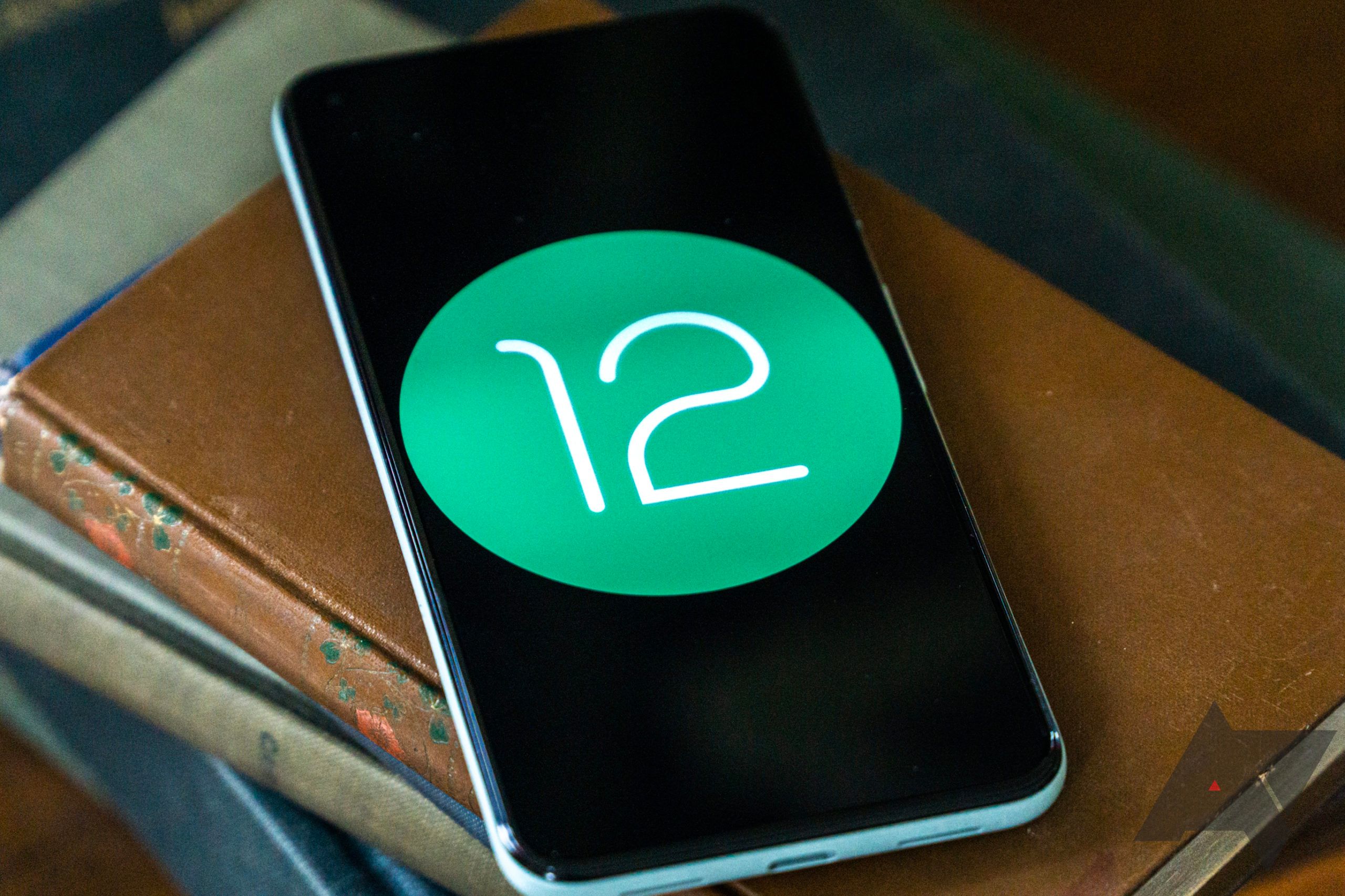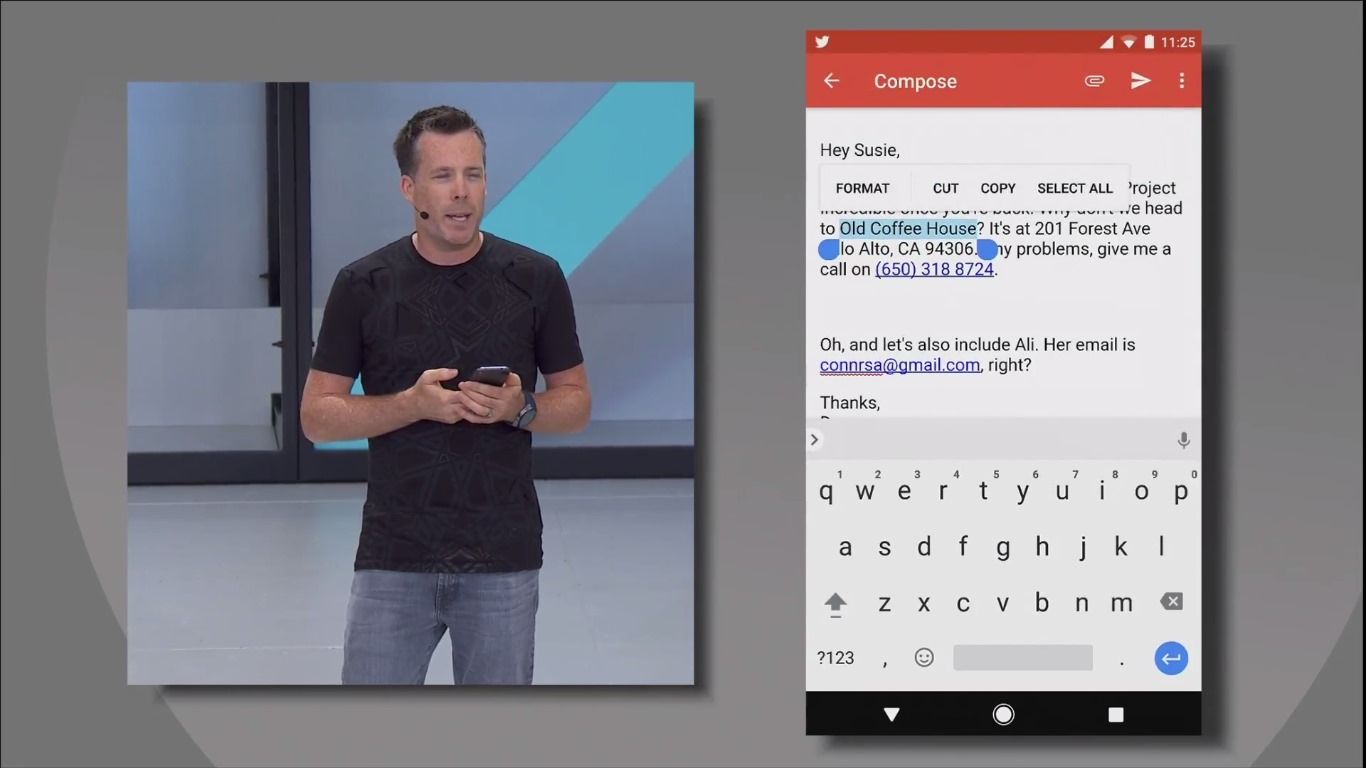latest

Android 12 Beta 2 brings back info-dense subtitles to the settings menu
Without abandoning its new look
Android 12 Beta 2 is chock full of visual changes, including the full implementation of its color-matching theme system. It's also changing some of the less popular additions from previous iterations of Android 12, including adding information density back to its settings menu.

You've been able to ask the Google Home for all kinds of information since its launch, but historically, it hasn't offered much of anything without a specific request. According to some users, though, it's been divulging additional relevant tidbits on its own during some responses.

Several months ago, we discussed something called Nearby, a project that - at the time - seemed to be Google's effort to let "people, places, and things" know when a user is, well, nearby. It seems that Google is still hard at work on its effort to connect various devices to each other and their surroundings, but Copresence (an internal name for this functionality) may have a more specific scope in this effort than we first estimated, apparently including iOS devices in the fun.

When you search for certain artists, movies, or figures, Google sticks a card within the results that displays background information all in once place. This way you can potentially get what you need without having to click on a single link. Recently the company started giving video games this same treatment.

In July, Chrome Beta was updated with a new interface that more closely adhered to Google's new design vision - material design. Fitting with Google's occasional habit of stripping things down during major refreshes (see Google Maps on the web), many elements of the interface were sliced, rearranged, or simplified, including the tab indicator in the top right corner of the screen. Previously, the indicator showed users how many tabs were open, but after the redesign it simply displayed a square (or two stacked squares if you had multiple tabs open). This was a thorn in the side of many users, who missed the helpful bit of information.

Google has just announced its second new app in one day, releasing Google My Business to the Play Store. With the goal of "helping your business shine," My Business offers smart insights for your Google-connected business. From Google+ page insights to the ability to update your company's information, My Business helps you find and connect with "your people."

Google translate can be tricked into providing some hilarious results, but for average queries, it generally does a really good job of translating and offering additional information like synonyms and usage types. It looks like Translate on the web is learning a couple of new tricks though - recently, Google flipped the switch allowing Translate to show usage examples and word definitions. Various alternate translations (sorted by frequency) still appear on the right, while the new bits of info appear in a column on the left.

No one app is going to make an Android device immediately safe from any and all threats, but some can make it easier to remain ever vigilant. viaProtect may one day be such a app. This piece of software gives you a basic idea where the apps installed on your phone or tablet are sending your information. It doesn't go into specifics, but it will at least show you how much of your traffic is encrypted and some other security-related information.

Privacy and technology maintain a tenuous relationship, and the balance between convenient features and personal security is always one worth keeping in mind as users make the most of their devices' capabilities. To that end, Chainfire has released a new proof of concept app that aims to give users at least some peace of mind when it comes to the - for lack of a better term - trackability of their devices, specifically related to Wi-Fi.

Update 2: According to TechCrunch, and Co-Founder/CEO of natural language processing startup Robin Labs, the app is a real, functional product built on the startup's "white-label" voice assistant platform. While it was not commissioned by Yahoo!, it was created during ongoing discussions with the company. Read the full story here.

We don't often cover Kickstarter campaigns – after all, the platform is flooded with entries that may not be worth mentioning, or are dead on arrival. Sometimes, though, a gadget comes through that exceeds expectations, and the myIDkey is one of those.

Have you ever wondered what it's like in the giant facilities where Google keeps all your data magically tucked away, ready at the tap of a screen? Well today, you can explore one such data center, street view style. An accompanying video will take you on a guided tour, showing you how the internet giant stores your data, keeps it cool, and destroys it when hard drives fail. Of course you can also walk around the building by yourself, and we certainly suggest you do, as there are plenty of easter eggs. Would you expect anything less from Google?

Hi. Welcome to the future. Mountain View, California, 2012. I'm telling you it's great here. You've got a location-aware, always-connected supercomputer in your pocket. What good is it, though, if you're only ever using it to check what's going on in Facebook land? Enter Field Trip, the latest app to be released by Google (via the obscure Niantic Labs), which offers you information about all the things around you, including trivia, facts about local monuments, restaurant reviews, and more.

It looks like the biggest leak of the Play Store's soon-to-launch gift cards may be coming from Google itself. A support page showed up in search indices (that has now been pulled) which confirms the cards will be US-only at launch and will come in $10, $15, $25, and $50 increments. Through some Google-fu, we've also learned your Google Play balance will have a $2000 limit and cannot be used on subscriptions or devices. So, sorry about your plans to buy a hundred $50 gift cards and then buy 25 Nexus 7s. That's forbidden.

Going Indie: The Story Of Independent Android Game Development From Concept To Completion
One of the great things about Android's ecosystem is the number of indie developers who are able to enter the market successfully, providing a great product
One of the great things about Android's ecosystem is the number of indie developers who are able to enter the market successfully, providing a great product and inspiring would-be developers to join in. For many though, Android development in general is a mysterious topic. How an app or game goes from an idea to an entry in the Play Store is unknown, but (thankfully) not unknowable.

PSA: Your Android Devices Appear In Google Dashboard, Find Out Which Apps Have Backups Available
The Google Dashboard is a handy tool for keeping up with what information Google has stored for you in its various different products. One piece of the
The Google Dashboard is a handy tool for keeping up with what information Google has stored for you in its various different products. One piece of the handy information, though, has taken a while to become available but it's there now: your Android devices. It's unclear if this feature has been around for a while, but either way, it's useful. If you'd like to see which devices are registered with Google, and more interestingly, which apps on those devices have backups stored on Google's servers, you can do so from your dashboard.

Slice, The Amazing Package Tracking App, Gets Updated To 2.0, Supports Outgoing Package Tracking, New Email Services, And More
When we first discovered Slice, the app that scans your email for packages that you're waiting to be delivered, has updated to version 2.0 and brought
When we first discovered Slice, the app that scans your email for packages that you're waiting to be delivered, has updated to version 2.0 and brought a host of new features with it. For starters, if you use Hotmail, AOL, or iCloud as your primary email, you can now join in the fun. You can track outgoing packages by scanning tracking barcodes as well or entering the number manually, and filtering options have been improved.

One of the nicest things about Android that gets taken for granted is the ability to customize your user interface. While most folks tend to stick to app icons for launching their apps, Tagy offers an alternative approach: a tag cloud. Tagy is actually a set of widgets that let you specify a list of apps, contacts, or bookmarks to appear in a single widget. Then, as you use the widget, the items you use more often will get bigger.

Going above and beyond their promise to save "time and annoyance" when screening, placing, or receiving calls, CallApp recently released their namesake app (a TechCrunch Disrupt 2012 finalist) to Google's Play Store.






